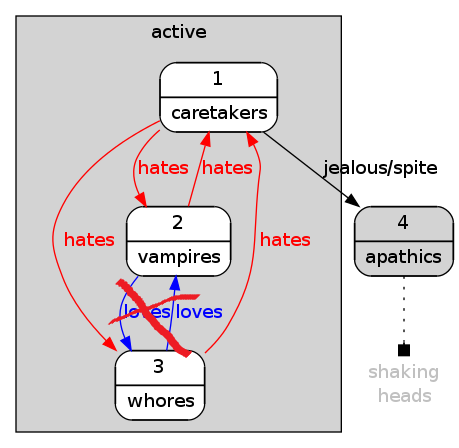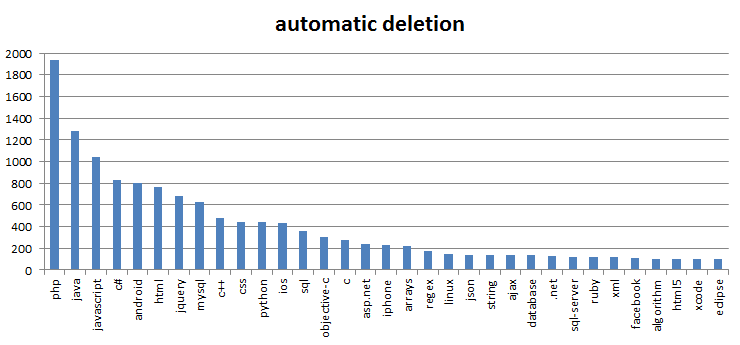So this question got me thinking...
We have several automatic processes in place for cleaning up cruft, deleting questions that are very unlikely to help anyone else. They're fairly conservative though; an awful lot of lousy questions hang around much longer, occasionally cropping up to annoy folks and attract angst. That's not good for anyone.
The most recent updates to these rules were discussed and implemented here: Turbocharging the Roomba: solutions for premature deletion - but the rest of those rules haven't been updated in over three years.
I think it's high time to revisit the criteria used for these, and try to identify areas for improvement - the goal being to get rid of a much higher volume of useless questions without the need to manually close and delete them. Here's what I'm thinking:
If a question is more than 30 days old, and...
- has a score of -1 or less, with no votes in the past 30 days
- has no answers with a score > 0
- is not locked
...it will be automatically deleted.
Notes on these criteria: the goal is to identify lackluster questions that never attracted an answer useful to someone else. The 30-day vote moratorium addresses a long-time complaint that the existing criteria allowed any downvoter to very quickly delete old questions with little time for review or correction on the part of the author.
Here's a SEDE query to give you an idea of the questions I'm talking about: https://data.stackexchange.com/stackoverflow/query/205342 (returns 100 semi-random questions meeting these criteria)
If a question has been closed for more than 30 days, and...
- has a score of 0 or less
- is not locked
- has no answers with a score > 1
- has no pending reopen votes
...it will be automatically deleted.
Notes on these criteria: the goal here is to identify closed questions that have neither particularly valuable answers and are unlikely to be re-opened. As such, we dispense with the logic that preserves answers with 1 vote or an accept mark that will stay deletion at 9 days. Downvoted duplicates are also added to the mix.
Here's a SEDE query to give you an idea of the questions I'm talking about: https://data.stackexchange.com/stackoverflow/query/205349 (returns 100 semi-random questions meeting these criteria)
To give you an idea of the sort of volume this would involve, I looked at the questions posted on Friday May 30th:
- 8881 questions were posted that day.
- 291 questions posted that day were closed that day.
- 429 questions posted that day were eventually closed.
- 961 questions posted that day currently score less than 0.
- 7665 questions posted that day are still visible on the site as I type this.
- 607 questions posted that day would be deleted if the new criteria were put into place.
That's another 7% of questions for that day that'd be removed immediately, with no work required from the folks on the site - no need to close them, no need to run them through the wringer here on meta or in chat, no need to do anything but just vote and then ignore them and let the system do its thing. In total, something north of 140K questions would be removed immediately if this were implemented, representing a rather large number of things that fell through the cracks.
As we continue to work on systems for emphasizing quality over crap, this sort of automatic cleanup system will become an increasingly-important method for keeping the underside of the proverbial rug from becoming too dusty.
Thoughts?


